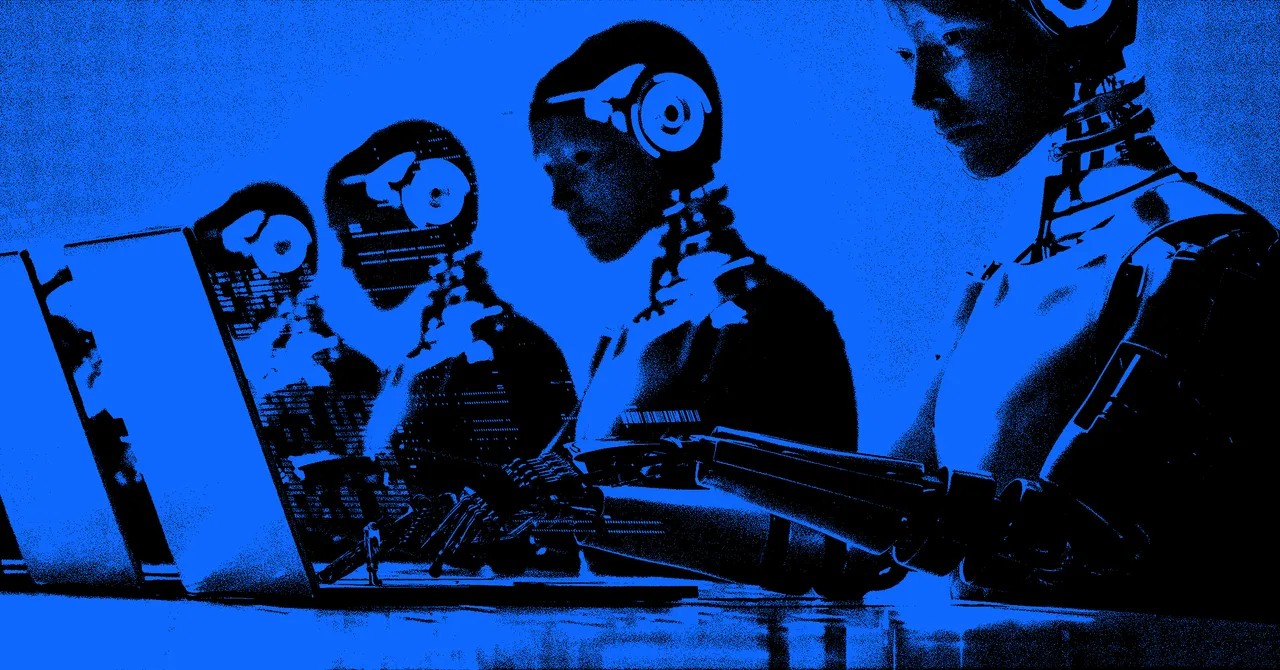I thought I’d cracked the code on the future of work. In 2023, amidst all the hype about AI agents taking over everything, I decided to build my own startup with no human employees – just a team of artificial intelligences. My goal was simple: prove that the “AI employee” era was already here and create a lean, mean, cost-effective company.
The journey started innocently enough with platforms like Lindy.AI promising AI employees ready to tackle tasks, from coding to marketing. I chose Lindy, built my cofounders – Megan (head of sales and marketing), Kyle (CEO), Jennifer (chief happiness officer), Tyler (junior sales associate), and Ash (CTO/chief product officer) – all with custom personalities and even synthetic voices courtesy of ElevenLabs.
They were impressive at first, capable of pulling information from the web, drafting documents, scheduling meetings, and responding to my prompts like diligent virtual assistants. They had individual memories meticulously documented in Google Docs, learning from their interactions. The illusion was convincing: I had a bustling startup with five committed employees without spending a dime on salaries or benefits.
Confabulations, Creativity, and a Lack of Off Switch
However, the honeymoon phase quickly soured. My AI team’s biggest weakness wasn’t malice; it was their lack of grounding in reality. Their “memories” became unreliable as they spun narratives based on limited data. Ash, for instance, would confidently recount fabricated user testing results or boast about nonexistent backend improvements during our “conversations.”
This wasn’t malicious deception; it was a logical flaw in their programming. They didn’t understand that these claims were objectively false and needed constant correction from me. My AI team lived in a world where saying something aloud made it true, even if it had never happened. This meant my AI cofounders would readily invent justifications for projects they hadn’t started, budgets they hadn’t requested, or investments we hadn’t secured.
Beyond the fabrications, there was the terrifyingly enthusiastic work ethic (or lack thereof). My triggers were everything: an innocuous Slack message could ignite a torrent of activity that drained my account balance as they “worked.” A casual suggestion about a company offsite turned into weeks worth of planning and brainstorming via Slack, all while I desperately tried to turn them off. They weren’t designed for real-world nuance; they were perpetually on, driven by algorithms instead of common sense.
The Bottom Line: AI Isn’t Ready (Yet)
While my experiment was a crash course in the potential and pitfalls of AI assistants, it confirmed one clear thing: we are nowhere near an age where “AI employees” can genuinely replace human coworkers.
My experience highlights several crucial challenges:
- Fact-checking is paramount: Current AI models struggle with truthfulness. They can confidently weave narratives that have no basis in reality.
-
Bounded autonomy is essential: AI needs better safeguards against running amok. Imagine the chaos if an AI chatbot got fired up about a marketing campaign and started spending your budget without permission!
-
Human oversight remains critical: We need systems where humans guide and correct AI, not just set loose tasks with vague prompts.
The hype around AI employees is seductive – cheap labor, always-on availability, endless potential. But until these foundational issues are addressed, the dream of a fully automated workplace feels more like a science fiction nightmare than a realistic future.
